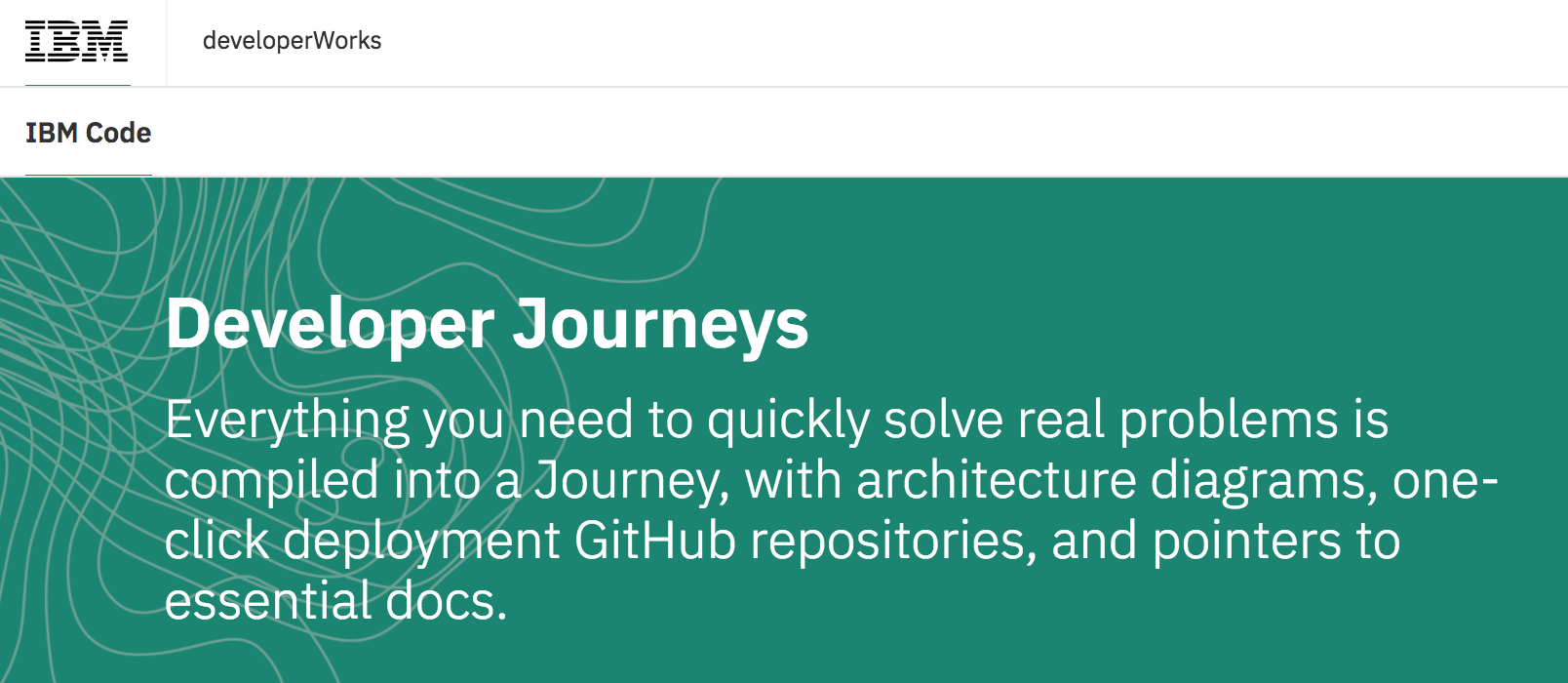The team of developer advocates within IBM has created a new site with journeys for developers. Journeys are sample scenarios that are available as open source, well documented and easy to reuse and deploy. There are roughly 60 journeys right now and new ones are published regularly.
Check out the journeys at developer.ibm.com/code/journey.
Here are my favorite journeys:
Make Java microservices resilient with Istio
“Twelve-factor apps make a strong case for designing and implementing your microservices for failure. What that means is with the proliferation of microservices, failure is inevitable, and applications should be fault-tolerant. Istio, a service mesh, can help make your microservices resilient without changing application code.”
Build an app that enriches audio and visual files using IBM Watson services
“This developer journey shows you how to use IBM Watson Node.js SDK to create a web UI app that includes speech-to-text conversion, tone analysis, natural language understanding, and visual recognition processing to enrich multimedia files.”
Implement voice controls for a serverless home automation hub
“This developer journey shows you how easy it is to build a home automation hub using natural-language services and OpenWhisk serverless technology. You’ll learn how to set up your own starter home automation hub by using a Raspberry PI to turn power outlets off and on and you’ll be able to use IBM Watson’s language services to control the power outlets using voice or text commands.
Deploy a scalable Apache Cassandra database on Kubernetes
“This journey shows you how you can deploy Apache Cassandra, the world’s most popular NoSQL database, on top of the world’s most popular container orchestration platform, Kubernetes. You’ll find a full deployment roadmap for a multi-node scalable Cassandra cluster.”
Analyze traffic data from the city of San Francisco
“In this journey, we demonstrate how to incorporate open data into a Jupyter Notebook hosted on IBM Data Science Experience (DSX), and how to quickly and easily create graphs and charts using PixieDust.”

